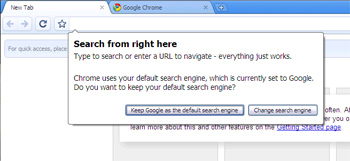Most debates–from privacy to net neutrality–about consumer protection in Internet policy come down to the following increasingly-cliched exchange:
1. Advocate of Regulation: “The government must intervene to protect users against Companies who want to [___________] by writing new laws or regulations!”
2. Regulatory Skeptic: “Why don’t we rely on the FTC’s enforcement of End User License Agreements (EULAs), privacy policies and other terms of service (TOS) under existing law? If companies spell out their policies clearly and then are required to stick to them, those policies will become part of competition: Companies will compete for consumers by offering attractive policies the same way they compete for consumers by offering attractive products & prices.”
3. Advocate of Regulation: “That doesn’t work because nobody actually reads all that legalese! They’re impossibly dense for non-lawyers, so companies always make such agreements as broad as possible to allow them to do whatever they damn well please–and bury all the really scary provisions.”
And yet… within 12 hours of releasing its new Chrome Browser, Google removed a clause from the Chrome EULA that essentially would have Given Google the right to whatever it liked with all content posted by users anywhere online using Chrome. If this incident demonstrates anything, it’s that there are significant “market forces” at work to restrain companies from writing agreements & policies that allow them to screw consumers. Indeed, it beautifully demonstrates why the Regulatory Skeptic ultimately wins this debate with one final response:
4. Regulatory Skeptic: “It doesn’t matter if 99%+ of users never read a EULA or TOS. No matter how hard companies might try to bury some ominous provision, the relatively small number of consumer protection watchdogs who do read such provisions protect everyone else by calling attention to true areas of concern. Not every blogger who complains about something he doesn’t like in a EULA is going to make Slashdot, but overall, provisions that cross a certain line will get public attention and most companies will bend over backwards to avoid bad PR. So, the market does work to protect consumers without the need for further government regulation.”

 To follow-up on my post from this morning I should note that
To follow-up on my post from this morning I should note that  Google is entering the browser wars today (if any such war still exists) with the launch of
Google is entering the browser wars today (if any such war still exists) with the launch of  The Technology Liberation Front is the tech policy blog dedicated to keeping politicians' hands off the 'net and everything else related to technology.
The Technology Liberation Front is the tech policy blog dedicated to keeping politicians' hands off the 'net and everything else related to technology.